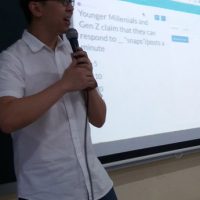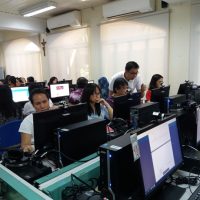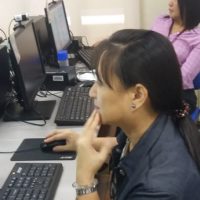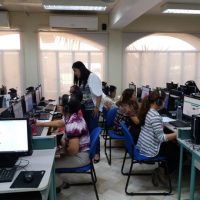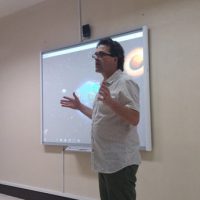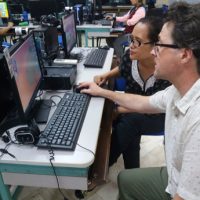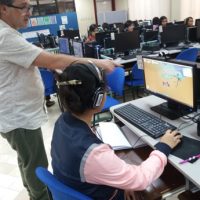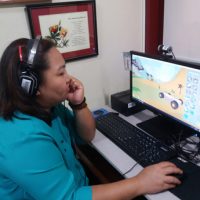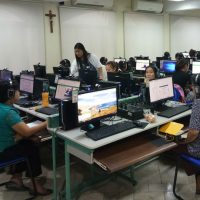
The way we want to teach today was not the way today’s teachers were taught (Koehler and Mishra, 2009). The Gen Z students have to be equipped to meet the challenges of the future. They must learn with technology, be able to use it to investigate and discern what is true and useful, and share their creation in a world that is still waiting to be discovered.
The Educational Technology Desk was set up to seamlessly integrate technology into our school curriculum, keeping in mind that we are gearing towards the development of 21st Century Skills for both students and teachers.
For a full week, from June 19 to 23, our faculty went through a series of intensive trainings on the various uses of technology in education.
STEAM Craft Edu introduced STEAM (Science, Technology, Arts, and Mathematics) integration to our teachers from the Grade School and Junior High School Departments. They learned to use Planeteers, a sequence of in-game quests that build in complexity within the context of their STEAM concept category. Its key educational features include: challenge and enquiry based learning; development of skills in design, innovation, problem solving, coding, and critical thinking; and nurturing curiosity.
REX Publishing demonstrated to our Senior High School faculty the use of Schoology. Through this learning management system, teachers will be able to post their lessons and assessments online and give immediate feedback, thus facilitating the smooth collaboration among teachers and students.
Education technology experts, Mr. Galvin Radley Ngo and Ms. Jade Bata, conducted a hands-on workshop, entitled 21st Century Skills of Educators: Changing the Mindset. The objective was to equip our teachers with core competencies that can engage the Generation Z students through technology and prepare them for jobs “that do not yet exist in a world that does not exist yet.”
During the first part of the workshop, Mr. Ngo emphasized that teachers need to make technology intersect with the lesson plan. Having the lesson goals in mind, teachers look for applications and sites that students may use to assist a learning that focuses on the 4 Cs:
• critical thinking that discerns truth from knowledge;
• creativity and innovation to think outside the box;
• communication; and
• collaboration online and offline.
Mr. Ngo also shared some tips which he called The Last Five Things on how to maximize learning:
• prepare a Plan B in case technology fails;
• choose a meaningful task versus busy work;
• classroom management is still the key to maximum learning;
• blur the lines between online and offline; and
• focus on the learning not the technology.
In the second part of the workshop, Ms. Jade Concepcion Bata introduced googleclassroom.com, padlet wall, and kahoot.com. The teachers had fun learning creative ways of utilizing the applications and are now eager to try them in their respective classes.
Finally, students from Grades 4 to 10 will also be educated on Digital Citizenship in their CAP modules. The main objective of this program is to teach them how to use media technology responsibly and ethically. Class Advisers and Asst. Class Advisers have been trained in the implementation of the program. Family tip sheets will also be sent to parents to promote home-school collaboration in achieving this goal.

